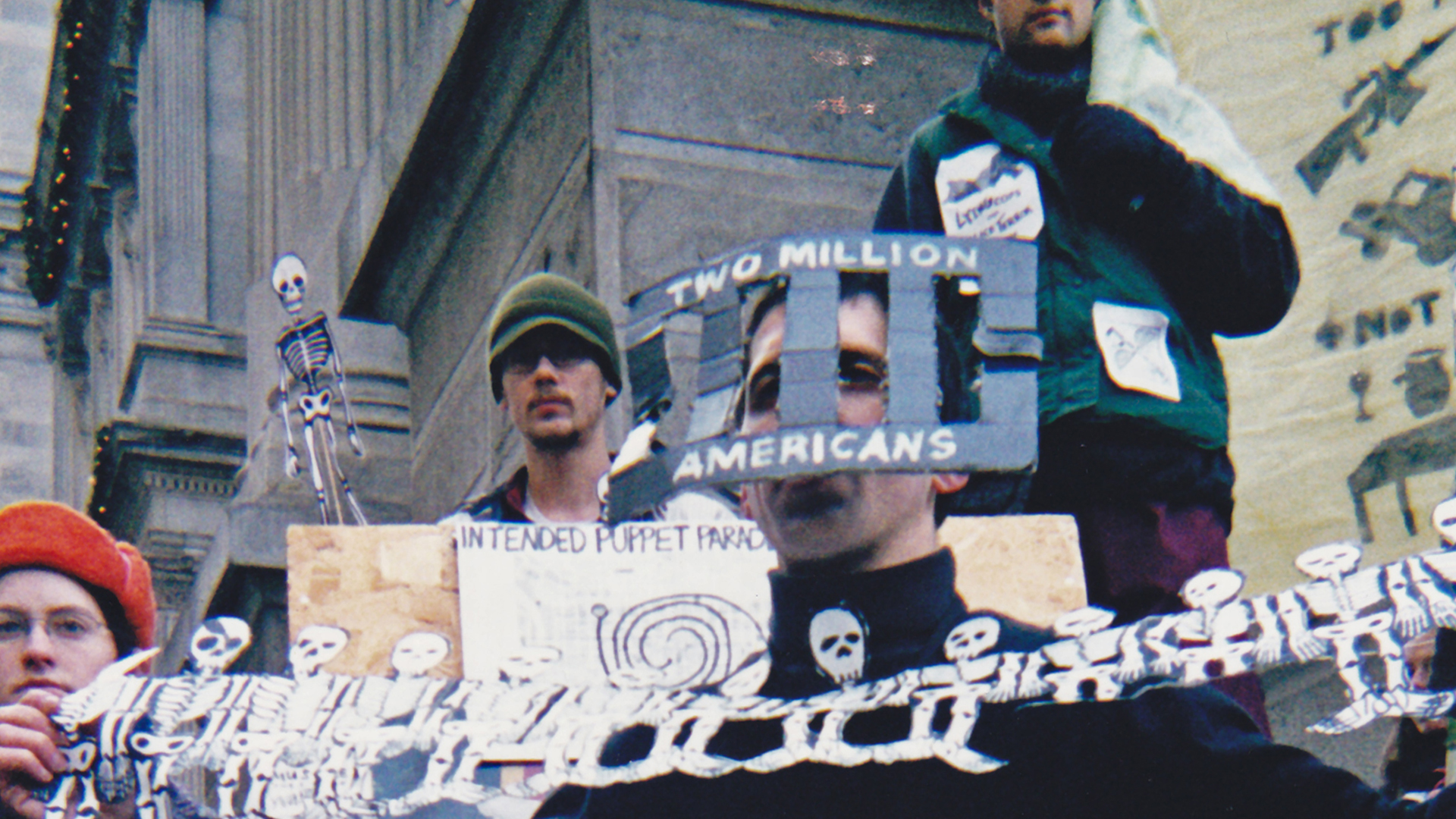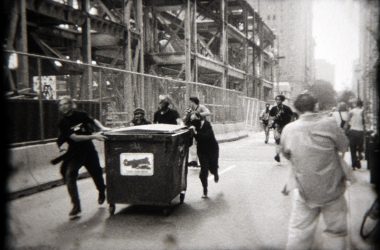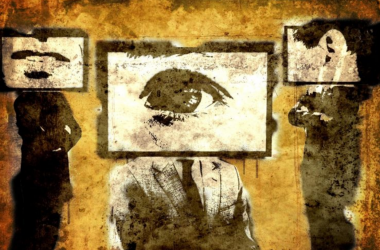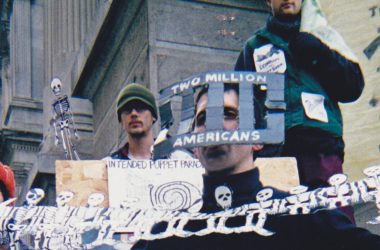By Kris Hermes
AnarchistAgency.com
July 18th, 2019

A media frenzy has ensued surrounding self-proclaimed journalist Andy Ngo who sought to bring attention to his plight after he was confronted by anti-fascist activists counter-protesting a white nationalist demonstration in Portland, OR on June 29. Ngo was allegedly punched, “milkshaked,” and the target of a silly-string attack.
Ngo is well-known in antifa circles as a far-right provocateur. Ngo has been called “fascist-adjacent,” knowingly aiding and abetting violence-prone neo-Nazis and white nationalists while posing as an independent journalist.
Ngo first attracted widespread criticism for an Islamophobic column he wrote for the Wall Street Journal in 2018, earning him the label “one of the leading amplifiers of Islamophobia” in the United States. Ngo also claims to be an editor for the right-wing online media outlet Quillette, which published an antifa “hit piece” a month prior to the June altercation that was picked up by several media outlets. By targeting a number of freelance journalists who write about antifa (among other important issues), Quillette enabled its far-right readers to threaten and harass the targeted journalists.
In addition to Ngo’s efforts at self-promotion, with claims of a brain hemorrhage stemming from the events of June 29, the mainstream media fed the controversy by circulating uncorroborated police claims that antifa activists had mixed quick-drying cement in milkshakes thrown at Ngo (the act of “milkshaking” was popularized this summer after multiple British protesters poured milkshakes on right-wing political figures.) No evidence of cement was ever found in the milkshakes thrown at Ngo or anyone else–but few if any media outlets have bothered to acknowledge this.
The same day that Ngo was confronted by anti-fascists in Portland, a claim on social media that antifa activists were planning an “acid attack” at an upcoming white nationalist demonstration in Washington, DC was repeated by law enforcement and picked up by multiple media outlets.
The police tactic of discrediting activists by circulating inflammatory and unfounded claims of “attacks” using acid, urine, and feces is longstanding and by now should be questioned, not simply echoed, by mainstream media.
The vast majority of mainstream coverage of antifa has failed to put events in context and ignored the threat of rising fascism in the United States, exemplified by the far-right using “free speech” demonstrations as a foil for its platform of xenophobia and hatred. Ngo’s latest efforts to stir up controversy and paint neo-fascists like Patriot Prayer and the Proud Boys as victims was a guest appearance on The Joe Rogan Experience, ranked one of the ten most popular podcasts by Time Magazine.
Like numerous other media outlets, Rogan not only failed to provide his listeners with a counterpoint, he also diminished the threat of neo-fascism by calling Proud Boys “flag wavers” and downplayed the significance of white supremacists carrying torches in Charlottesville and the murder of anti-racist activist Heather Heyer.
Rogan and Ngo feigned puzzlement over why anti-fascist activists in Portland would be militantly opposed to neo-fascist groups, without even mentioning the numerous examples of violence by these groups, including the fatal stabbing of two people on public transit in 2017 at the hands of a neo-Nazi.
Ngo complains to Rogan (and anybody who will listen) that law enforcement consistently fails to intervene and hold antifa activists accountable for their actions. But more often than not, antifa activists are the ones arrested by police even when violence is precipitated by far-right activists. Mainstream news outlets reported that three antifa activists were arrested on June 29, the day that Ngo was confronted. Police have gone so far as to post mugshots of antifa arrestees in what has been considered an effort to incite harassment against them.
During a June 2017 demonstration in Portland, a member of the far-right group Oath Keepers can be seen assisting Portland police arresting an antifa activist. More recently, it was revealed that right-wing Patriot Prayer organizer Joey Gibson exchanged hundreds of text messages with Portland police, discussing demonstration plans and providing Gibson with sensitive police information.
While we might expect law enforcement to be biased and favorable to right-wing causes, they go too far by labeling antifa activists as “domestic terrorists.” The mainstream media has an important role to play calling out such distortions and keeping police and right-wing factions in check.
Indeed, mainstream media must play this role not only in relation to antifa activism, but also to avert other forms of repression which have become too commonplace today. Such media-fueled labeling of activism is part of a broader, dangerous trend that aims to justify state crackdowns on radical activists, leads to the criminalization of dissent, and legitimizes the adoption of anti-protest laws.
It’s distressing to see superficial coverage of neo-fascists and a mainstream media tendency to quickly condemn the tactics of antifa activists. In 2017, less than three weeks after Heather Heyer’s murder by a white nationalist in Charlottesville, Daily Show host Trevor Noah criticized antifa and ridiculed its tactics, setting the stage for other media outlets to discredit their efforts while refusing to take seriously the threat of neo-fascism.
The mainstream media is now leading a dangerous trend that must be reversed.
TAKE ACTION
An effective way to call out media outlets for publishing inaccurate or unsubstantiated claims about anarchists and antifa is to promptly write a letter to the editor. We have put together a few tips to help your letter get published:
- Respond directly to a published article by citing it in your letter, preferably in the first sentence.
- Keep your letter concise and on point: stay under 200 words and limit the content to one or two key points.
- Take the time to check your sources. Make sure your arguments are solid.
- Remove every non-essential word, eg. “I think…”
- Use easily read, accessible language.
- Don’t use ALL CAPS or bold to emphasize words.
- Make it personal and relatable for the reader.
- End your letter with a call to action.
- Follow the publication’s guidelines on how to submit your letter to the editor.
- Include your full name and contact information.
Kris Hermes is a Canadian-based activist, author, and media worker who for the past 20 years has engaged with movements to resist grand juries and political repression, provide mass demonstration legal support, and help to defend high-profile criminal cases.




